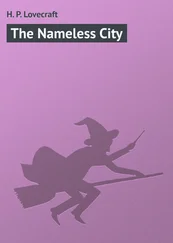Maurus Jokai - The Nameless Castle
Здесь есть возможность читать онлайн «Maurus Jokai - The Nameless Castle» весь текст электронной книги совершенно бесплатно (целиком полную версию без сокращений). В некоторых случаях можно слушать аудио, скачать через торрент в формате fb2 и присутствует краткое содержание. Город: New York, Год выпуска: 1898, Издательство: Doubleday, Page & Company, Жанр: Историческая проза, на английском языке. Описание произведения, (предисловие) а так же отзывы посетителей доступны на портале библиотеки ЛибКат.
- Название:The Nameless Castle
- Автор:
- Издательство:Doubleday, Page & Company
- Жанр:
- Год:1898
- Город:New York
- ISBN:нет данных
- Рейтинг книги:4 / 5. Голосов: 1
-
Избранное:Добавить в избранное
- Отзывы:
-
Ваша оценка:
- 80
- 1
- 2
- 3
- 4
- 5
The Nameless Castle: краткое содержание, описание и аннотация
Предлагаем к чтению аннотацию, описание, краткое содержание или предисловие (зависит от того, что написал сам автор книги «The Nameless Castle»). Если вы не нашли необходимую информацию о книге — напишите в комментариях, мы постараемся отыскать её.
The Nameless Castle — читать онлайн бесплатно полную книгу (весь текст) целиком
Ниже представлен текст книги, разбитый по страницам. Система сохранения места последней прочитанной страницы, позволяет с удобством читать онлайн бесплатно книгу «The Nameless Castle», без необходимости каждый раз заново искать на чём Вы остановились. Поставьте закладку, и сможете в любой момент перейти на страницу, на которой закончили чтение.
Интервал:
Закладка:
“For six whole years he never once let me see him smoking a pipe!” murmured Marie to herself. “How much he enjoys it! Do you”—turning abruptly toward the baroness, who was smilingly watching her young guest—“do you object to tobacco smoke?”
She seemed relieved when the baroness assured her that tobacco smoke was not in the least objectionable.
Some time later, when reminded that it was time for little girls to be in bed, Marie protested stoutly that she was not sleepy.
“Pray, little mama,” she begged, “let us look a little longer through the telescope; it is so interesting.”
But even while she was giving voice to her petition the windows in the dining-room over at the castle became darkened. The gentlemen evidently had retired to their rooms for the night.
“Oh, ah-h,” yawned Marie, “I am sleepy, after all! Come, little mama, we will go to bed.”
Katharina herself conducted the young girl to her room. Marie exclaimed with surprise and delight when, on entering the room adjoining the baroness’s own sleeping-chamber, she beheld her own furniture—the canopy-bed, the book-shelves, toys, card-table, everything. Even Hitz, Mitz, Pani, and Miura sat in a row on the sofa, and Phryxus and Helle came waddling toward her, and sat up on their hind legs.
The things had been brought over from the castle while the baroness and Marie were in the park.
“You will feel more at home with your belongings about you,” said Katharina, as she returned the grateful girl’s good-night kiss.
PART VII
THE HUNGARIAN MILITIA
CHAPTER I
When Count Vavel and the vice-palatine disappeared from the window of the dining-room, they did not retire to their pillows. They went to Ludwig’s study, where they refilled their pipes for another smoke.
“But tell me, Herr Vice-palatine,” said the count, continuing the conversation which had begun at the dining-table, “why is it that six months have been allowed to pass since the Diet passed the militia law without anything having been accomplished?”
“Well, you must know that there are three essential parts among the works of a clock,” returned Herr Bernat, complacently puffing away at his pipe. “There is the spring, the pendulum, and the escapement. The wheels are the subordinates. The spring is the law passed by the Diet. The pendulum is the palatine office, which has to set the law in motion; the escapement is the imperial counselor of war. The wheels are the people. We will keep to the technical terms, if you please. When the spring was wound up, the pendulum began to set the wheels going. They turned, and the loyal nobles of the country began to enroll their names—”
“How many do you suppose enrolled their names?” interrupted the count.
“Thirty thousand cavalry and forty thousand infantry—which are not all the able-bodied men, as only one member from each family is required to join the army. After the names had been entered came the question of uniforms, arms, officering, drilling, provisions. You must admit that a clock cannot strike until the hands have made their regular passage through all the minutes and seconds that make up the hour!”
“For heaven’s sake! What a preamble!” ejaculated the count. “But go on. The first minute?”
“Yes; the first minute a stoppage occurred caused by the escapement objecting to furnish canteens; if the militiamen wanted canteens they must provide them themselves.”
“I trust the clock was not allowed to stop for want of a few canteens,” ironically observed Count Vavel.
“Moreover,” continued the vice-palatine, not heeding the interruption, “the escapement gave them to understand that brass drums could not be furnished—only wooden ones—”
“They will do their duty, too, if properly handled,” again interpolated Vavel.
“A more disastrous check, however, was the decision of the Komitate that the uniform was to consist of red trousers and light-blue dolman—”
“A picturesque uniform, at any rate!”
“There was a good deal of argument about it; but at last it was decided that the companies from the Danube should adopt light-blue dolmans, and those from the Theiss dark-blue.”
“Thank heaven something was decided!”
“Don’t be too premature with your thanks, Herr Count! The escapement would not consent to the red trousers; red dye-stuff was not to be had, because of the continental embargo. The militia must content itself with trousers made of the coarse white cloth of which peasants’ cloaks are made. You can imagine what a tempest that raised in the various counties! To offer Hungarian nobles trousers made of such stuff! At last the matter was arranged: trousers and dolman were to be made of the same material. The Komitate were satisfied with this. But the escapement then said there were not enough tailors to make so many uniforms. The government would supply the cloth, and have it cut, and the militiamen could have it made up at home.”
“That certainly would make the uniform of more value to the wearer!”
“ Would have made , Herr Count; would have made! The escapement suddenly announced that the cloth could not be purchased; for, while the dispute about the colors of the uniform had been going on, the greedy merchants had advanced the price of all cloths to such an exorbitant figure that the government couldn’t afford to buy it.”
“To the cuckoo with your escapement! The men have got to have uniforms!”
“Beg pardon; don’t begin yet to waste expletives, else you will not have any left at the end of the hour! The counties then agreed to pay the sum advanced on the original price of the cloth, whereupon the escapement said the money would have to be forthcoming at once, as the cloth could not be bought on credit.”
“Well, is there no treasury which could supply enough funds for this worthy object?” asked the count.
“Yes; there is the public treasury for current expenses. But the treasurer will not give any money to the militia until they are mounted and equipped; the escapement will not furnish the cloth for the uniforms without the money; and the treasury will not give any money until the militia has its uniforms!”
“Well, a man can fight without a uniform. If only these men have horses under them and weapons in their hands—”
“Two of these requisites we already have; but the escapement announces that arms of the latest improvements cannot be furnished, because the government has not got them.”
“Well, the old ones will answer.”
“They would if we had enough flints; but they are not to be had, because the insurrectionary Poles have captured the flint depot in Lemberg.”
“Each man certainly could get a flint for himself.”
“Even then there are only enough guns for about one half of the men. The escapement suggested that to those who had no arms it would furnish—halberds!”
“What? Halberds!” cried Vavel, losing all patience. “Halberds against Bonaparte? Halberds against the legions who have broken a path from one end of Europe to the other with their bayonets, and with them carved their triumphs on the pyramids? Halberds against them? Do you take me to be a fool, Herr Vice-palatine?”
He sprang to his feet and began to pace the floor excitedly, his guest meanwhile eying him with a roguish glance.
“There!” at last exclaimed Herr Bernat, “I will not tease you any longer. Fortunately, there is a clock-repairer who, so soon as he perceived how tardily the hands performed their task, with his finger twirled them around the entire dial, whereupon the clock struck the hour. This able repairer is our king, who at once advanced from his own exchequer enough money to equip the militia companies, distributed six thousand first-class cavalry sabers and sixteen cannon, and loaned the entire Hungarian life-guard to drill the newly formed regiments. And now, I will wager that our noble militia host will be ready for the field in less than thirty days, and that they will fight as well as the good Lord permitted them to learn how!”
Читать дальшеИнтервал:
Закладка:
Похожие книги на «The Nameless Castle»
Представляем Вашему вниманию похожие книги на «The Nameless Castle» списком для выбора. Мы отобрали схожую по названию и смыслу литературу в надежде предоставить читателям больше вариантов отыскать новые, интересные, ещё непрочитанные произведения.
Обсуждение, отзывы о книге «The Nameless Castle» и просто собственные мнения читателей. Оставьте ваши комментарии, напишите, что Вы думаете о произведении, его смысле или главных героях. Укажите что конкретно понравилось, а что нет, и почему Вы так считаете.












